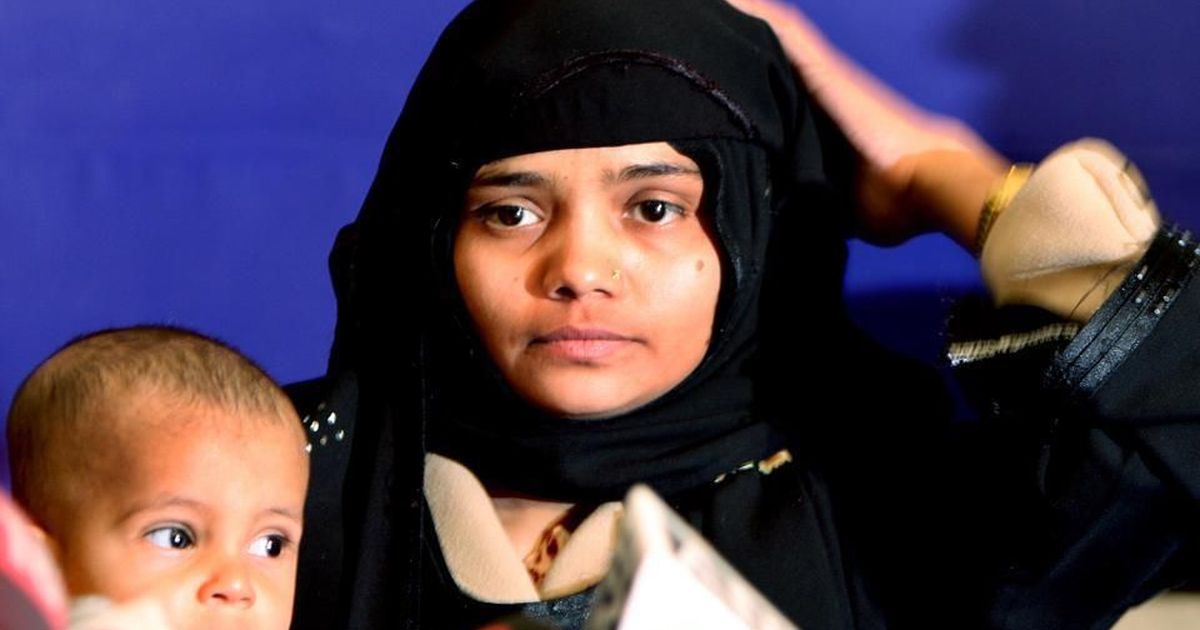On 25 April, the Supreme Court passed a landmark judgment directing the Gujarat government to give Bilkis Bano a compensation of Rs. 50 lakhs, a job of her choice and accommodation in a place of her choice. Bilkis Bano was gang-raped during the 2002 Gujarat pogrom. During the incident,14 members of her family were killed including her two-and-half-year-old daughter, who was snatched from Bano’s arms and smashed to death on a rock.
The judgement is a breakthrough for a number of reasons.
Rs 50 lakhs is the highest compensation announced by the Supreme Court to a gangrape victim. The last quantum of aid allotted by the district legal services authority (DLSA), Ernakulam, in 2018, was Rs 10 lakhs to the family of a minor girl who was raped in 2010.
By directing the Gujarat government to make reparations, the Supreme Court has implicated the state on moral as well as constitutional grounds. The verdict, in Bilkis’ own words, has sent a signal to the State and to each citizen of this country, “we have rights that no state can be allowed to violate.”
Shoba Gupta, Bilkis Bano’s lawyer, called the judgement “a big moment” because the compensation took into consideration two important parts of the crime: the public law remedy as well as the private law remedy.
Part 1 or the public law remedy accounts for the gang rape and communal violence. Part 2, the private law remedy, is connected with the people who are meant to protect citizens and maintain law and order, but were doing something completely contrary in this case. “They were ensuring that the culprits are never punished. Now, you might say that the compensation for Part 1 of the crime has to come from the private accused. But how could Part 1 take place if the state functionaries were doing their job. How can you allow a communal riot to take place with people armed with swords roaming around in open vehicles saying ‘Muslims ko maar denge’?”
The Supreme Court’s judgement was passed two years after the Bombay high court delivered justice, convicting 11 of the accused, including five Gujarat policemen and two doctors, for tampering with evidence. The high court had observed: “The omissions on the part of the police accused are so grave and so obvious that their malafides and intentions are very apparent. The investigation is not only faulty but it is downright tainted.”
The “diabolical” nature of Bano’s case raised questions on the limits of citizenship for women and victims of riots. She was fighting not only as a woman who had been violated, but also as a citizen who was a victim of state-engineered violence.
“You will not find any other case which has such gruesome acts upon an individual and her entire family followed by a series of crimes to stop her from getting justice,” said Shoba Gupta.
Her case not only points to the strength of the civil society but also to the possibility of overcoming the failures of a seemingly all-too-powerful-state.
In order to fully comprehend the scale of the massacre and the complicity of the state, one needs a change in the vocabulary, said lawyer and writer Warisha Farasat, demanding that the 2002 Gujarat violence, of which Bilkis Bano was a victim, be called a pogrom and not a riot. “A communal riot means violence between two communities. But it could not have been a communal riot because it was not between equal parties. It was a pogrom, a massacre of one community. Planning that involved even state mechanisms like the police.”
At every step of her struggle, the Gujarat government failed Bilkis. After the ghastly attack on her, not only did the police dismiss her case, they even threatened to inject her with poison if she insisted on including the rape charge in the FIR. Imagine the plight of a wounded citizen, who is betrayed and isolated by the very institutions that are put in place to secure her rights.
Every single member of her family was killed in the pogrom. At 21 years, she was rendered an orphan with no emotional support around her.
For 17 years since the incident, Bano and her husband have led a nomadic life. They could not educate their children in one place. They could not have a neighbourhood. They did not have a livelihood. They were dependent on charity and help from NGOs. All because the state failed to do its job. Bilkis Bano was given no protection, no rehabilitation.
It was solely the financial, legal and moral support of the Centre for Social Justice (CSJ) and the National Human Rights Commission (NHRC) that enabled her to move to the Supreme Court and eventually secure a conviction.
While addressing the press after the verdict, Bilkis used words like “faith”, “trust” and “justice”. Indeed, the nation’s faith in the judiciary was resting on her case.
“Justice should not only be done but must also be seen to be done. We fought the Bilkis case not just for her, but for all Bilkises,” said her lawyer. “The compensation you are granting should be monumental. It should be loud and clear. So loud that it resounds in everybody’s ears. A figure of one crore would have rung loud and clear. For the victims, it would say “don’t worry we are here”. For the perpetrators, it would say ‘don’t you dare to do it again’. For all state governments, it would be a note of caution.”
Read more:
Hate Crimes in India: We Need to Come Together to Understand the Problem and Respond to it
Can the (Married) Woman Speak?
Indira Jaising: “It’s tragic that there were no women in the SC Bench that delivered the Triple Talaq Judgement”





